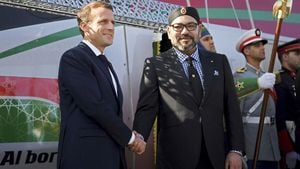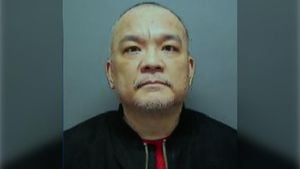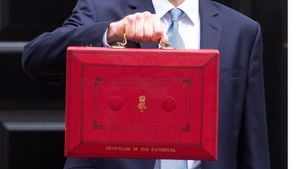Southern Africa is currently experiencing significant political turbulence, particularly highlighted by the recent developments surrounding elections in Mozambique and discussions about the political future of South Africa. The integrity of democratic processes is under scrutiny, leading to calls for action from regional organizations and political analysts alike.
Following Mozambique's presidential election, there has been widespread condemnation over alleged irregularities. The Democratic Alliance (DA) condemned the election marred by claims of fraud and political violence. Daniel Chapo, declared the winner with 70.6% of the vote, faces serious allegations of electoral manipulation, raising questions about the fairness of the process. International observers, including the European Union, reported numerous irregularities, such as vote tampering and intimidation, which compromise the essence of free and fair elections.
The unsettling aspect of this election was not only the alleged fraud but also the violent assassinations of two aides to Chapo's leading opponent, Venâncio Mondlane. Just days before official results were announced, the attacks have cast a dark cloud over the political atmosphere, jeopardizing the trust citizens hold in their governing institutions.
Many political commentators urge the Southern African Development Community (SADC) to intervene and demand transparency through independent recounts. The call for such measures reflects growing concerns about potential unrest and discontent among the youth and civil society, who are yearning for leadership free from corruption and repression.
Building on this theme, political analyst Makone Maja discussed the precarious political situation not only in Mozambique but also its cross-border implications for South Africa during a recent podcast. Maja emphasized the need for South African leadership to navigate these issues carefully, especially as the country struggles with internal coalition governance amid allegations of election manipulation and fluctuated allegiances.
Maja also pointed out the diverse perspectives among the youth concerning South Africa’s international alliances. Some young people still view Russia positively due to its historical ties during the anti-apartheid struggle, whereas others lean toward Western nations for opportunities. This generational divide speaks volumes about the potential challenges the ANC faces as it tries to align its historical allegiances with modern aspirations.
Back home, South Africa’s ruling coalition is grappling with its legitimacy, with internal tensions becoming increasingly apparent. Maja noted the establishment of dispute-resolution mechanisms within the ANC as attempts to manage the internal conflicts and reassert its influence. Despite these trials, President Cyril Ramaphosa maintains relatively solid approval ratings, but potential successors are waiting for the right moment to emerge.
The current political coalition, named the Grand National Unity (GNU), is still acclimatizing to the nuances of coalition governance. Maja highlighted the importance of patience as the nation seeks to evaluate its effectiveness. The recent by-elections indicated some shifting dynamics among the opposition, with the DA witnessing growth and the Patriotic Alliance (PA) making notable gains, which could signal changing voter sentiment.
On top of domestic challenges, South Africa’s foreign policy continues to evolve against the backdrop of global shifts. Maja advocates for strategies to attract investments through balanced foreign relations, as underlined by advancing challenges faced by Western economies.
Meanwhile, Botswana, another pivotal nation within the region soon to hold its general elections, serves as a contrasting example. Known for its stable democracy and significant diamond resources, Botswana has remained relatively prosperous. The upcoming elections reflect the strength of its parliamentary system, established since independence from Britain.
Botswana has maintained its position as Africa’s leading diamond producer, contributing significantly to its GDP and employment rates. Yet, the nation still grapples with socio-economic disparities, with stark differences between the wealthy and poorer populations. Reports indicate high unemployment rates, with data showing more than 23% jobless individuals as of 2023.
Although Botswana stands as one of the least corrupt nations within sub-Saharan Africa, its progress is hindered by persistent inequality, demonstrating the need for continued vigilance as elections approach. This situation emphasizes the delicate balance between upholding democratic values and managing economic challenges.
To summarize, the political landscapes across Southern Africa are under tremendous scrutiny, with Mozambique facing significant accusations of election fraud and violence overshadowing its electoral process. Meanwhile, South Africa has internal coalition dynamics to manage, alongside examining the perspectives of the younger generation on national and international policies. Botswana presents its own challenges as it prepares for elections amid existing socio-economic disparities. The outcomes of these political movements hold potential consequences not only for individual nations but also for regional stability.
The situation across Southern African nations highlights the importance of democratic integrity and the active role citizens and governments must play to safeguard these values. The region stands at a crossroads with significant decisions to be made, as collective futures rely on stable governance and the pursuit of equitable outcomes for all citizens.



